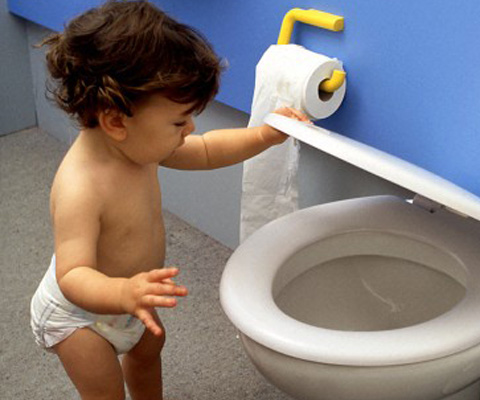Toileting : Bladder and Bowel Control course


This session describes the process through which children gain continence. In addition this session also covers the recognition and management of common problems.
Learning objectives
By the end of this session you will be able to:
- Describe normal anatomy and physiology associated with urinary and bowel continence
- Outline the process whereby normal children achieve continence
- Advise parents on toilet training in healthy children
- Discuss the range of variation and factors that impair or promote continence
- Describe the effects of constipation on toilet training
- Explain some of the causes of delayed urinary continence, initial assessment and management
Toilet training is an important developmental milestone in the life of any child allowing independence and social acceptance.
Toilet training can be a stressful and difficult time for parents and children. The time it takes for a child to become clean and dry during the day will vary a great deal. Informed advice from a professional can be invaluable to parents/carers.
Anne Wright, MBBCh, MRCPCH, MSc Comm Paeds, has a joint consultant post as hospital consultant in charge of the Children’s bladder clinic at the Evelina Children’s Hospital (Guys and St Thomas) where she works closely with the nephro-urology and paediatric neurology departments covering the full spectrum of bladder disorders from severe resistant enuresis to neuropathic bladders in spina bifida.
She is responsible for paediatric urodynamic investigation within the service. She also manages children with joint bladder and bowel dysfunction.
The second post is as Consultant Community Paediatrician in Southwark with responsibility for the bowel and bladder clinic in the community as well as physical and learning disabilities, neurodevelopmental disorders (Autistic spectrum disorders, ADHD) and child protection.
As of 2010, she has been Chairman of the ERIC clinical advisory committee and is a member of the Paediatric Continence Forum.


Anne Wright, MBBCh, MRCPCH, MSc Comm Paeds, has a joint consultant post as hospital consultant in charge of the Children’s bladder clinic at the Evelina Children’s Hospital (Guys and St Thomas) where she works closely with the nephro-urology and paediatric neurology departments covering the full spectrum of bladder disorders from severe resistant enuresis to neuropathic bladders in spina bifida.
She is responsible for paediatric urodynamic investigation within the service. She also manages children with joint bladder and bowel dysfunction.
The second post is as Consultant Community Paediatrician in Southwark with responsibility for the bowel and bladder clinic in the community as well as physical and learning disabilities, neurodevelopmental disorders (Autistic spectrum disorders, ADHD) and child protection.
As of 2010, she has been Chairman of the ERIC clinical advisory committee and is a member of the Paediatric Continence Forum.
- Assessing Treatment Effectiveness course
- Posted By eIntegrity Healthcare e-Learning
- Posted Date: 2025-01-14
- Location:Online
- This session describes how to compare the effectiveness of different analgesics and explains why com...
- Antidepressants and Anticonvulsants course
- Posted By eIntegrity Healthcare e-Learning
- Posted Date: 2025-01-14
- Location:Online
- This session describes the pharmacology of antidepressants and anticonvulsants and their clinical us...
- Local Anaesthetics course
- Posted By eIntegrity Healthcare e-Learning
- Posted Date: 2025-01-14
- Location:Online
- This session describes the pharmacology of local anaesthetics and their clinical uses as analgesics....
- Opioids for Persistent Pain: Using Opioids in Prac...
- Posted By eIntegrity Healthcare e-Learning
- Posted Date: 2025-01-14
- Location:Online
- This is the second of two sessions covering the use of oral and transdermal opioids for persistent p...
- End of Life Care | Advance care planning | Advance...
- Posted By eIntegrity Healthcare e-Learning
- Posted Date: 2025-01-13
- Location:Online
- This session focuses on principles of good practice which underpin the appropriate and valid use of Advance Decisions to Refuse Treatment (ADRT), within an end of life care context. This session was reviewed by Fiona Rawlinson and Sarah Hanrott and last u








